The Road Rose To Meet Me: A Conversation With Dr. Deenaz Damania
Dr. Deenaz Damania is a Coonoor-based psychotherapist and trekking enthusiast who has chosen to keep growing at every juncture in her life that presented a challenge. She speaks to us about love, loss, learning and always looking ahead…
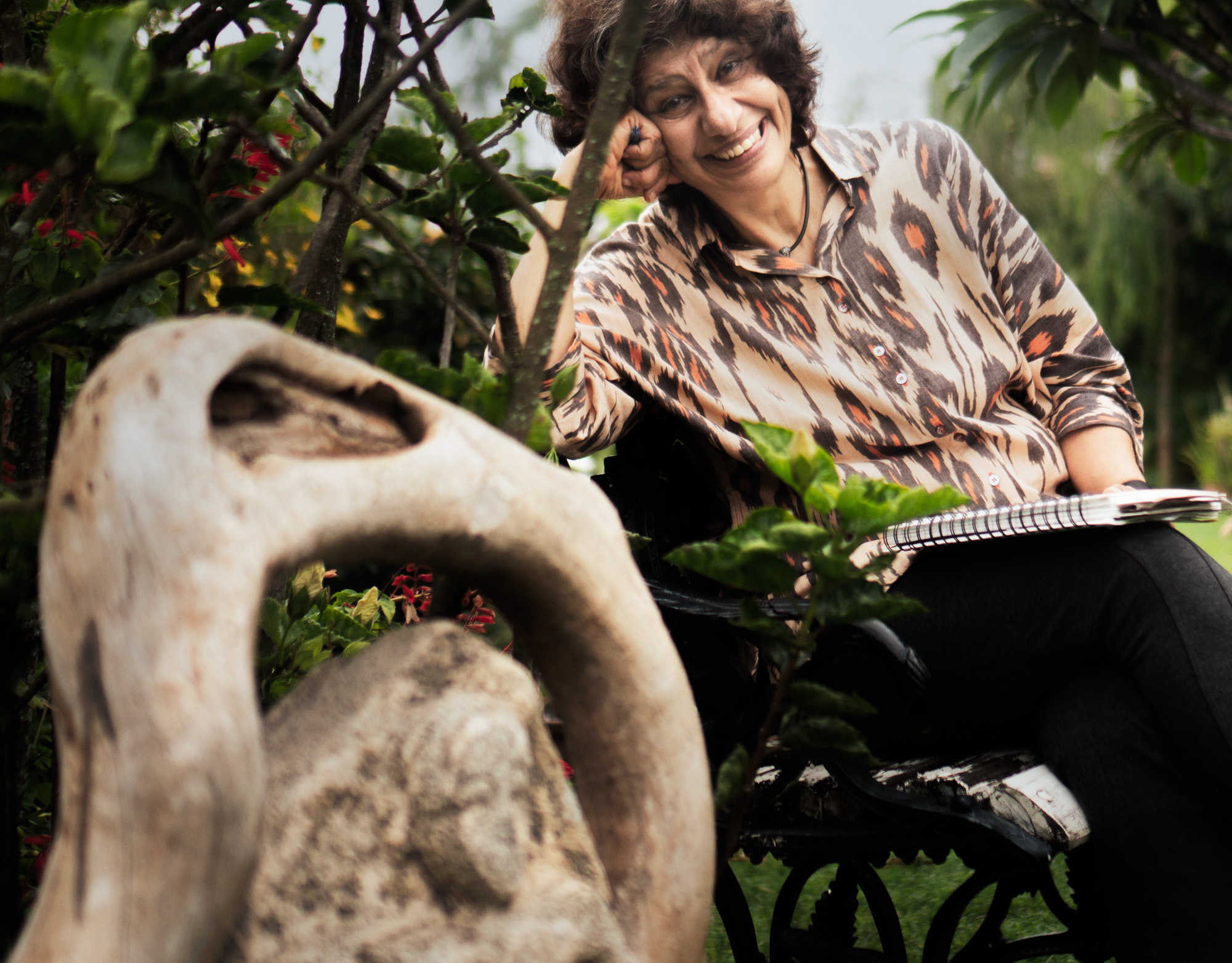
Sharanya Manivannan: I am someone who seeks maps for how to live meaningfully, and I believe that these maps must be shared. Thank you for giving us a glimpse into yours. Can you begin by telling us what brought you to Coonoor, and what made you decide to make this town your home?
Deenaz Damania: I think Coonoor – discovering Coonoor – has been a very important part of my life journey, at this stage. I was, at one level, not completely at peace with what was happening in my life, because of different pressures and challenges. I wanted more. I was not using who I was. I was not deeply happy, and I tend to be a kind of person who is deeply happy and who loves life. I knew that unless I made a couple of important changes, I would step away from who I am as a human being, basically. So this was at the back of my mind, at a very subconscious level. I had recently quit a very active career, and I was in this space where I had time to think.
It just so happened that a very dear friend of my first husband, whom I lost to cancer, lived in Coonoor. I hadn’t seen him for many years, and I decided to visit him. I arrived in the evening. When I woke up in the morning, Sharanya – I don’t know how to describe it. I felt I had come home. A certain sense of peace descended on me. That was it. I knew not a soul here except this one fine gentleman, when I decided with my second husband to build a home here. For him, it was a holiday home. For me, it was a life transformation. It changed my life and filled in the gaps in ways that I didn’t know life would. I didn’t know what I would do with my life here, but everything fell into place.
SM: Would you then say that a sense of place is very important to a person’s well-being, or is everything within?
DD: Actually, a place as a place has no meaning. A place if it connects to one’s soul has meaning. At one time, Bangalore had that connection for me. At some level, it still does. Bombay had it for me when I was growing up. So it’s not Coonoor the place as much as what Coonoor represents for me today, which is: another way of life, another value system, a slowing down of the hurry. Ruthlessly travelling and taking flights and being important and sitting on boards of companies – that phase is done. Coonoor represents the simplicity of the mountains, of nature, of plants.
SM: This connection between place and person: how does one recognize it, and forge it?
DD: One has to be internally prepared. I know people who say a mountain is fine for two days and then it’s boring. Or they ask me, “How can you be alone with your husband just visiting every month or you going to Bangalore every month? How can you be alone for ten days or two weeks at a time and not be lonely?”
The cultivation is all at the non-verbal level. It’s your needs, and the lack you experience. I don’t think I could have done it when I was a vibrant 40-year old, for example. Perhaps – I don’t know. But now, a lot of my worldly needs have been met. A lot of my active chasing of success has been met. I was, to that extent, feeling complete. What was not complete was that there were still parts of me that were not finding expression in life. By moving here and taking time to get to know myself better, I discovered I liked myself more and more. I discovered that I can be friends with the birds and the flowers, and I can achieve a sense of completion within myself, to the extent that I can be alone and not be lonely.
SM: When we were first introduced you spoke of how you just want to keep learning. Can you talk about learning and self-growth as active pursuits?
DD: I think my life is all about learning. Formal learning and informal learning. I started as a post-graduate student of social work. I practiced social work. I went into the corporate world. I taught myself management consulting and research, then I did a PhD in that – much later, when I had two children. Struggled, struggled, struggled, but did it. Then I went into teaching at the post-graduate level, to management students. Then I became a psychotherapist. Every ten years, my career has changed. UNICEF, Government of India, child welfare, destitute children, corporate world, consulting, adoptive parents…
Everything is connected yet everything is disparate. I’ve had about five careers. A very defining part of who I am is curiosity. I love asking “Why?” at every stage of life.
SM: Another thing that strikes me from our earlier meeting as you talk about transformation and choosing to change is that you said that day, “Nothing is forever.” There are many ways to interpret this, and in many moods. I’d love to know what it is about this phrase that you feel strongly about.
DD: When we grow older, we become more and more like our parents ,whether we like it or not. I feel sad that we are too much like our parents and too little like our children. I believe the lessons that our children teach us are our most precious lessons. If we can build on the foundation of what our parents give us, but become more like what younger people teach us, we can be better. That is the openness to change. Thank God nothing is forever.
Change can be internal. Change can be life circumstances.
When I was 22, I was confident, ready to go abroad to live and work at a fabulous place on a fabulous scholarship. Three months before I was due to go, I met a man two and a half inches shorter and 12 years older than I was, and I gave it all up and married him two months later. Nothing held meaning except this wonderful human being I had met. So that changed the entire course of my life. I would have become a high-flying, full time therapist back then. I put it on hold till much later in life. But if I did not embrace that change, I would have been a much lesser mortal.
Change is very hard. You give up who you are and become who you should be. It is associated with pain, never with joy. Change is the only way to become a full human being. Otherwise, we die as half human beings.
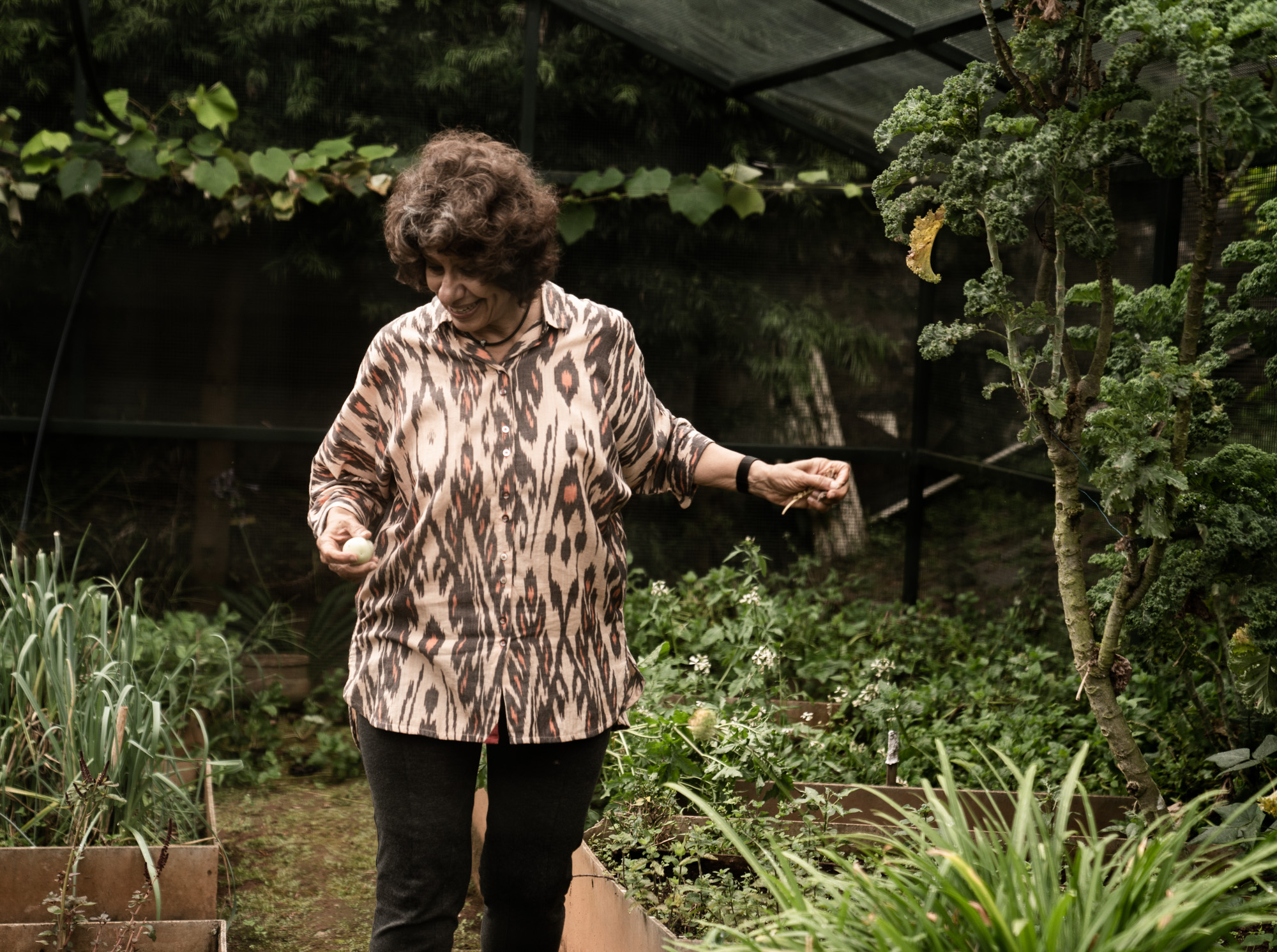
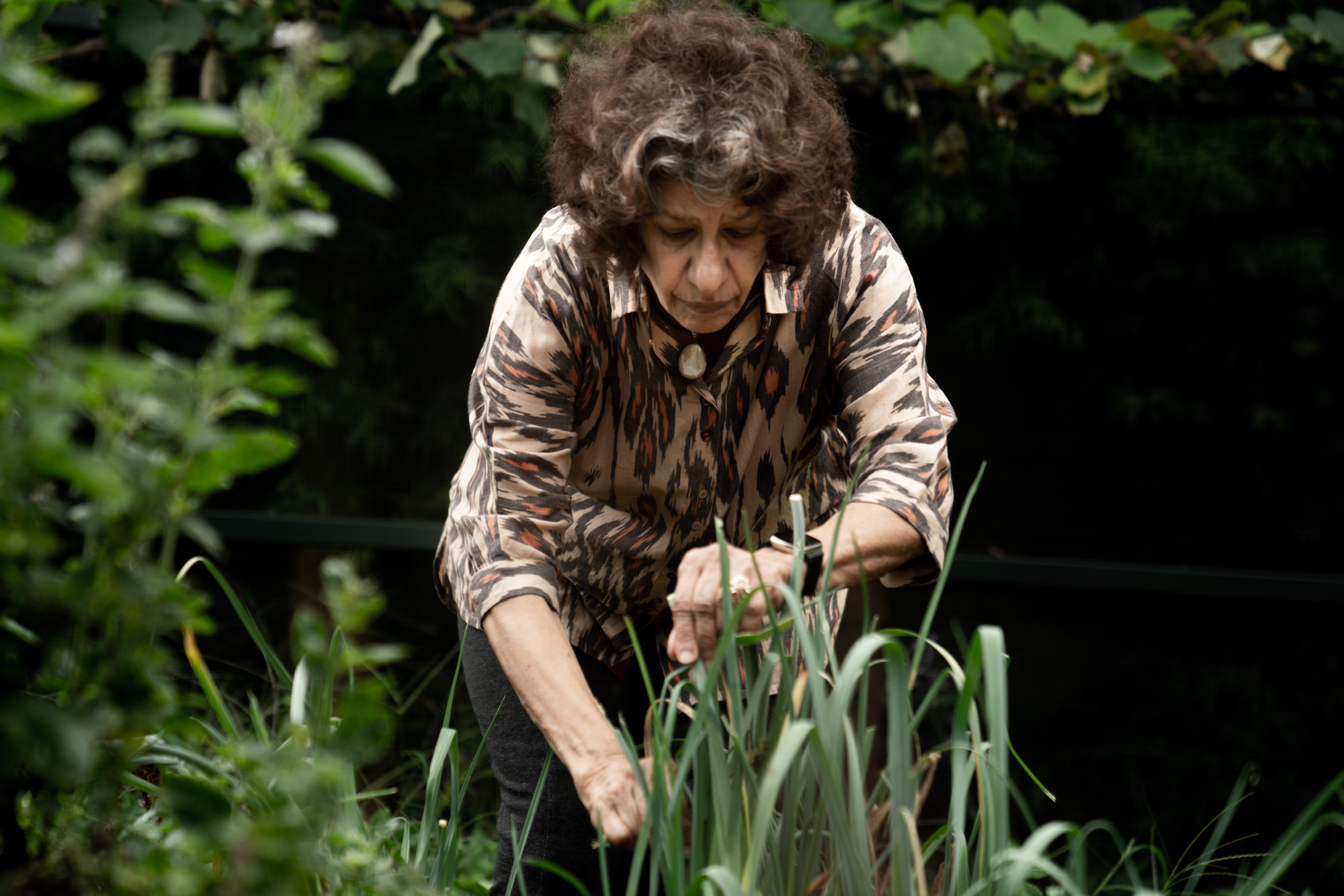
SM: I’d like to circle back to something you said, on a personal note. I come from an abusive family. The last thing I want to be is like my parents. I’m unlikely to have children, although that may change – after all, life is full of transformation. What then does one do when conditioning, circumstances, other people’s deliberate attempts, have prevented one from shaping one’s life as one wants? Is there anything you can say broadly to people who need to wrest power back to shape their lives?
DD: Freud said life is deterministic. His whole approach was that things are shaped till you’re 6, then God help you. Unless you do a lot of psychoanalysis. I believe that sometimes years of psychoanalysis may not be beneficial to us, unless there is a conscious effort to change one’s perspective and enable a shift within us. I do believe that one can overcome one’s challenges. One can become a better human being based on the suffering one goes through. For that, we need two kinds of intelligence: the mind, and emotional intelligence.
Some of the finest human beings I have met are through my therapy practice. My clients have had the courage to question, to challenge, to rebel and to grow. The most difficult times we have in life are with our families, for everybody. The most satisfying times, if one is lucky, are also with one’s loved ones. So when I use the terms “parents” and “children” I don’t mean literally. I would be the last person to believe that blood is thicker than water because I’ve worked in adoption. When I say “parents” and “children” I just mean older people and younger people.
SM: Thank you for clarifying that. Just now, you talked about learning from clients. You once mentioned a person anonymously who said “I have lived a rich life but not a happy one.” The distinctions between these struck me as interesting…
DD: I am very clear. I find that a life of purpose and meaning is far superior to a life which can generally be described as a “happy life”. You can choose to believe that you are “happy” without engaging your mind or heart in any significant manner. I would not define that as a happy life. Ultimately, we are not born into this world to have a small, narrow focus. We are born to have purpose and meaning. I learnt that when I started suffering. Through my suffering I realised that there was another purpose to my life. Who was I to question what had happened to me? Why should I feel angry about it? Why should I feel like a victim? So what if people looked at me with pity?
When I lost my first husband, I didn’t want to live. I knew I had had a good life but the desolation, despair, depression and sadness were hard to deal with. At such times, one struggles to overcome the desire to go too. At that time I was deeply lonely, and I can relate to everybody who loses a friend or a spouse. Deeply. I became a more compassionate human being on the saddest day of my life.
Within the same year, I lost my husband and both our girls left home for work and study. I took a decision to find purpose and meaning through that suffering. Let me tell you – the finest human beings come to you when you are searching for answers. It need not only be family. I found my answers. The minute I did, my suffering became less. I don’t know how to describe that, but I found my purpose in life to go ahead. I strongly feel that meaning and purpose are something all of us should seek, actively.
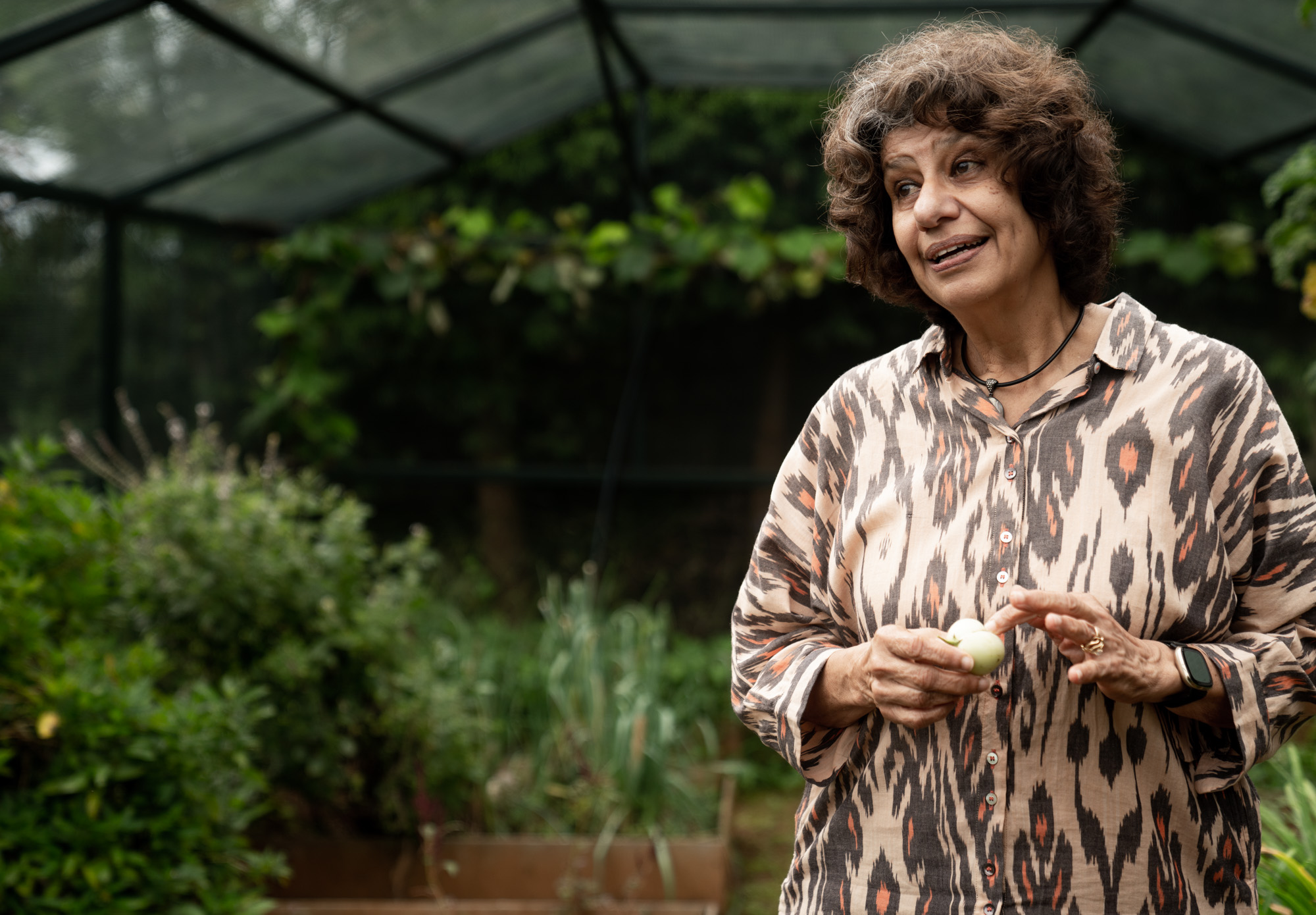
SM: You have also benefited from therapy; there was a particular experience of receiving grief counselling under the stars in Lonavala that you recounted…
DD: I graduated from the Tata Institute of Social Sciences. In early January 2001, they asked me to come and speak at a conference that they had organised for the first time of international therapists and counsellors. At that time, I had said that I couldn’t come, as I had a husband who was very ill and dying and that I could not leave him. It so happened that he passed away that March. I remembered that the conference was later in April. On an impulse, I wrote and said: “I am alone now. My responsibility is over. I’ll come.” I went just to distract my mind. It was the most fantastic experience, even though I hadn’t expected it to happen.
At the introductory round of the conference, I said, “I am grieving now. I am grieving the loss of a soulmate. I’m not my usual self, but I came here quite honestly to just be away from home.” That night, two of the world’s best therapists sought me out. We sat outdoors, under the stars, and they helped me release much of my pain. It was magical. I came away a new person.
I had never studied grief therapy as a specialisation, and I then realised the power of it. It helped me stand up much faster, from what would have taken me months and months otherwise, and get in touch with myself.
SM: Do you attribute any of this to being in the hills, under the stars?
DD: Just the stars could never have done it, but they certainly added something magical to the experience.
I used to be a much more reticent person when it came to speaking about my inner world. But these two women, these therapists, drew me out beautifully. Ah! Now that you’ve connected the mountain and the stars – maybe it couldn’t have happened in an urban environment…
SM: Your garden in Coonoor is full of flourishing things: fragrant magnolia, nourishing kale, fresh strawberries. Among them are sculptural objects, made not just of stone, but also of driftwood. You have brought some of these back from hiking expeditions along the Bhavani river and other places. Can you talk a little about how to stay spry, both in the heart and in the body?
DD: My hiking or walking did not start until I was in my 40s. My first hike up any mountain was up Kinabalu, on the island of Borneo in Malaysia –
SM: Kinabalu is a tricky trek! That was your very first one? (DD nods) That’s adventurous!
DD: It happened because just about four months earlier, my husband – who had been a robust guy – had been diagnosed with a pretty deadly cancer. We came through the first round of surgery. We were living in Malaysia. One day he said, “Come on, get ready, you have to walk with me every day. We are going up Kinabalu.” I had no idea what Kinabalu was, but we began training to trek.
I went up the mountain with this man. For us, it meant more than just a trek. It was a “We shall overcome” thing.
It was beautiful – beautiful. Absolutely fabulous, and from then on I was hooked to the outdoors. To a large extent, my interest in trekking, walking and nature were gifts from Malaysia.
SM: How have you cultivated that interest over the decades since?
DD: I feel alive when I walk. It’s difficult to explain, but I connect with myself when I walk and I feel good. I have inherited my mom’s arthritis but I never wanted that to stop me from anything I wanted to do. When I had a couple of meniscus tears, a year ago, my orthopedician said, “Deenaz, you cannot walk up steps or slopes anymore”, I wept in front of him. How could he tell me that I can’t walk in the hills I love? But it healed. My meniscus tears are in control. I didn’t have surgery. I still walk.
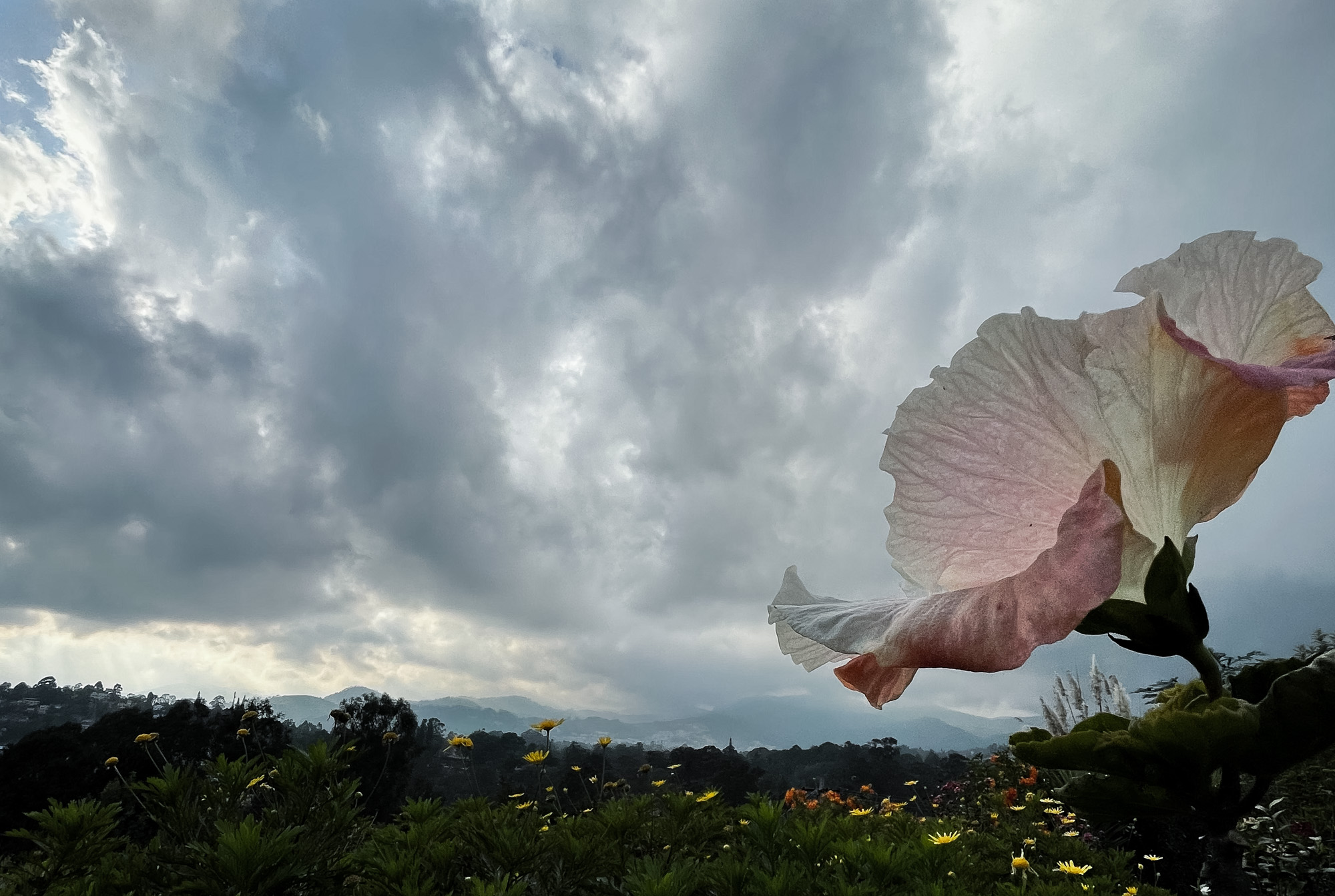
SM: You found love again later in life, and remarried, which is inspiring and challenges so many societal notions about love. Is there anything you can share with us about how this happened?
DD: It happened just before I turned 60. I just know that the closeness and comfort of the bond experienced during the first close relationship of 25 years had clearly “allowed’ me to be vulnerable, and that I had found the reawakening of romance and caring neither unnatural nor something to run from.
The two experiences have been so different, each enriching in its own way, and each with its own challenges at different stages of my life. Interestingly, each set of experiences has contributed to my personal growth and resilience, and helped me emerge as a psychotherapist with a deeper understanding of the human condition, compassion and ability to make a difference in people’s lives.
SM: I began this by saying that I like maps. Toko-Pa Turner wrote: “Drop your maps and listen to your lostness like a sacred calling into presence”. Can you describe a moment in your life when this happened – when you chose to drop a map you had created or been given, and let your lostness lead you into something extraordinary?
DD: I love the word “lostness”. During the past 25 years I have experienced it twice.
The first time was when I lost the love of my life, and felt my life was over. Before that, I had given my all to researching the deadly illness and been so brave in the face of so many odds. Then, my doctor friend sat me down and explained to me that my husband was suffering very deeply and literally staying alive because of his love for me, and that I should cease all medication and let him go in peace. Out of that terrible sense of lostness and grief, I had that most difficult and last conversation with my beloved, and gave him “permission” to leave and journey on… Although he had lost the ability to speak, his eyes conveyed that he had understood and let a tear fall, and he left my world a day later.
The second time was another very deeply troubling time when I had felt alone and almost “abandoned” by life. I was losing my self-confidence and my natural ability to laugh and be in love with life. That was when that sense of “lostness” gave me the courage to take charge of my life, and start the new journey of my life that brought me to these mountains, and I have never looked back.
The road rose to meet me and embrace me and comfort and energize me, and today I am living the kind of life at the physical, emotional, intellectual and spiritual levels that I had never dreamt was possible!
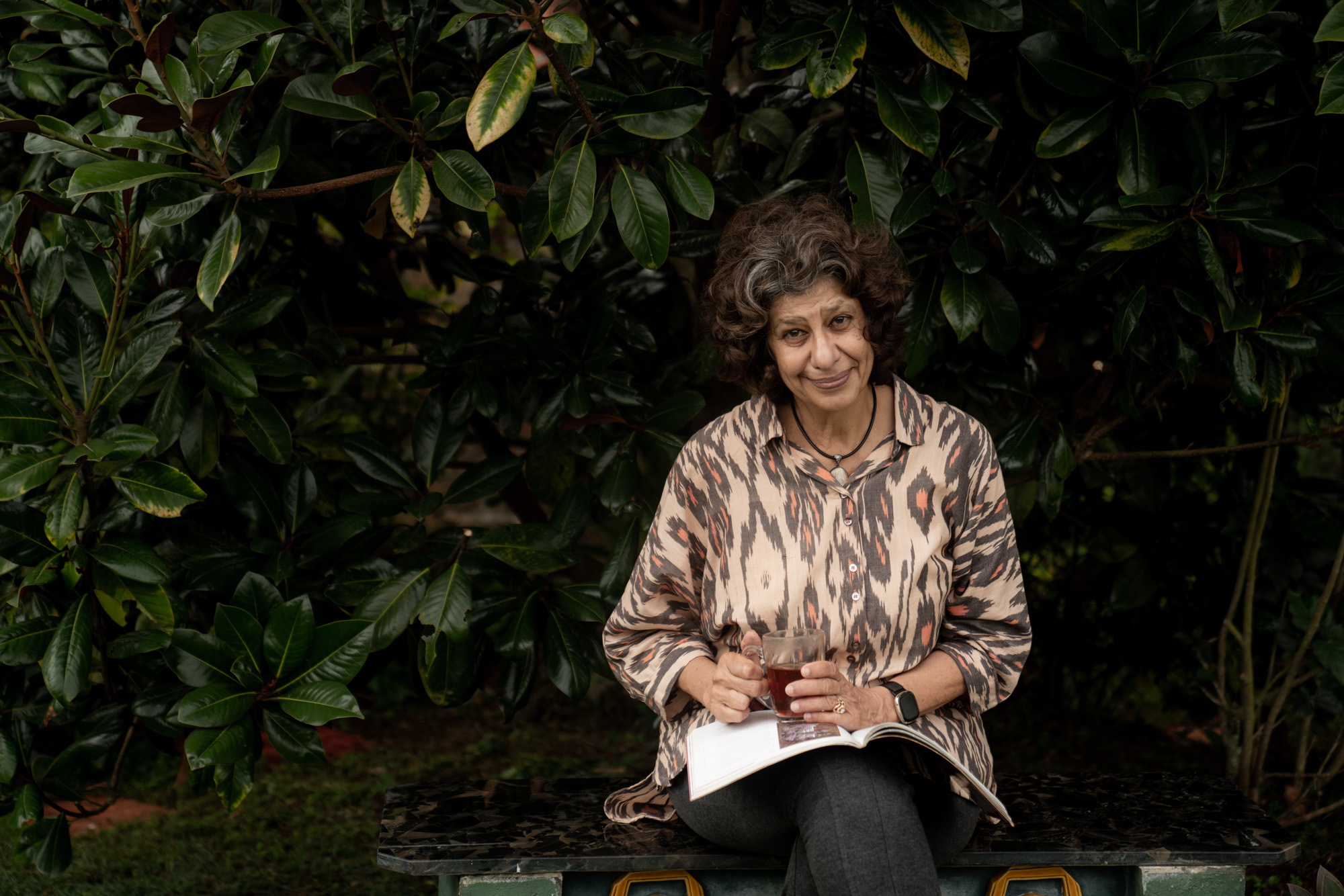
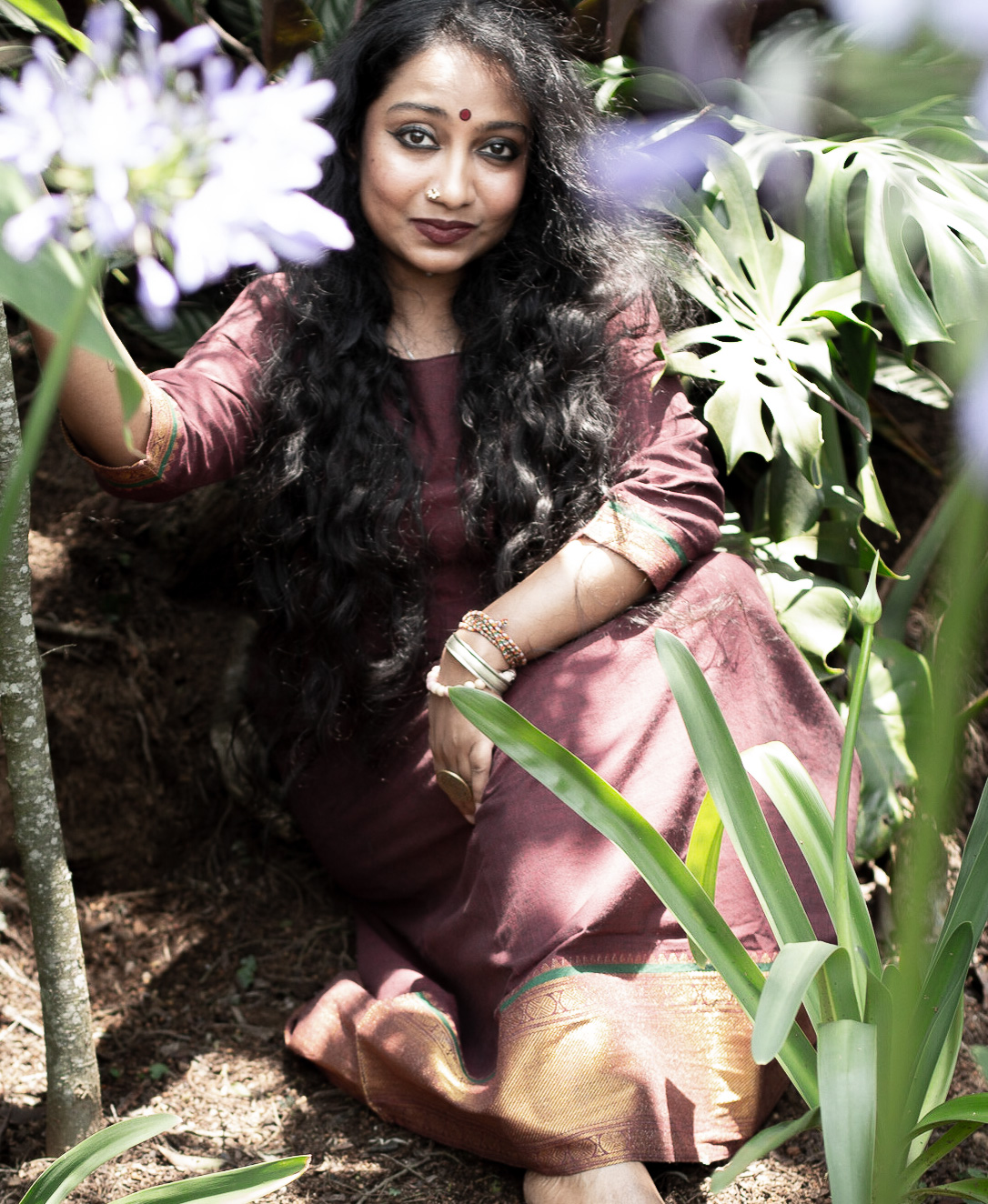
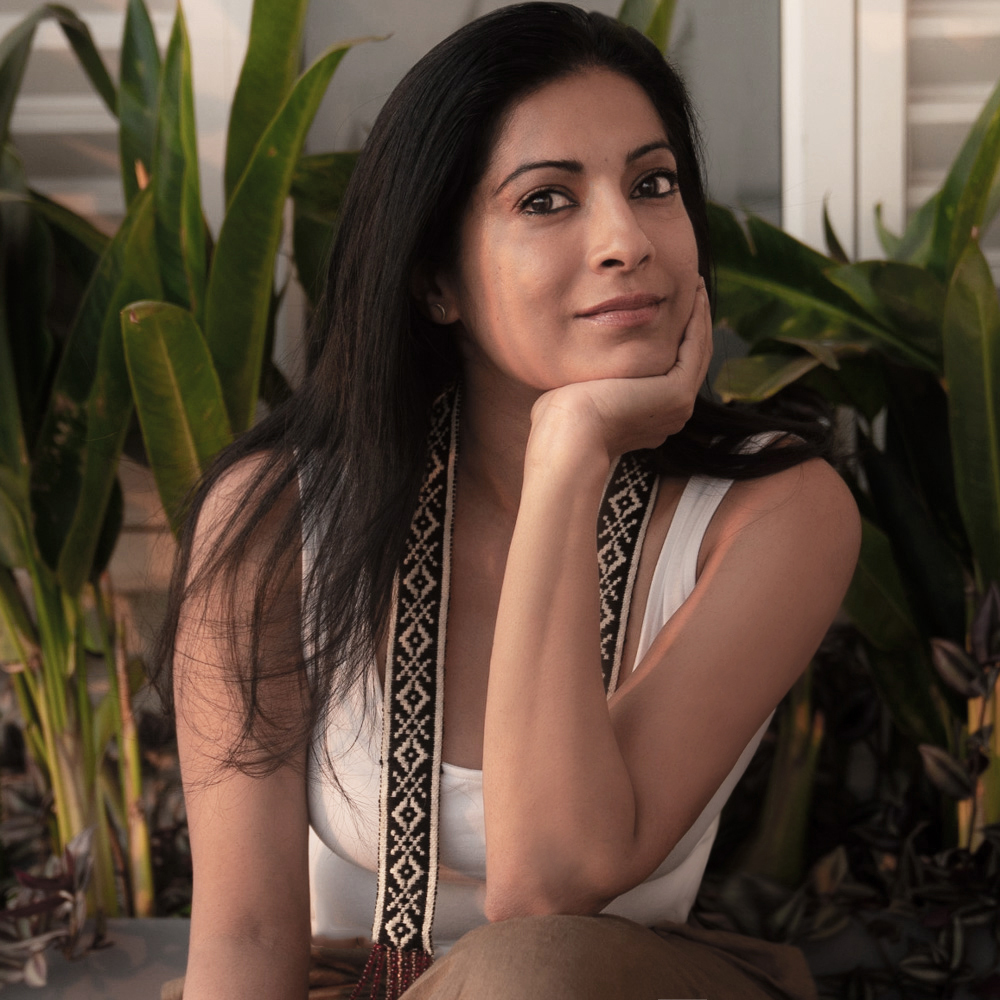

Loved the Article on Deenaz and have had the opportunity to meet and enjoy her delightful persona and her beautiful home. Thank you for affording a glimpse into her life.
Eye Opener Great lesson for millions suffering from similar situations Keep doing such wonderful real life narrations.
Deenaz, with her words, radiates strength and light!
Been very lucky to have known DD in a personal level, her story is very insightful and great inspiration to everyone who seeks depth in life still unable to get a hold on it’s like a mirror to oneself please make sure it reaches many. My continued best wishes as always
Been very lucky to have known DD in a personal level, her story is very insightful and great inspiration to everyone who seeks depth in life still unable to get a hold on it’s like a mirror to oneself please make sure it reaches many. My continued best wishes as always
Very insightful ! Interesting to know about Deenaz. Very nicely penned down too
So much to relate to here. Reading this made me feel much better. Thank you, Deenaz and the Coonoor team. I have always loved Coonoor, and am so thrilled to see there’s a whole team of you guys telling stories from the Blue Mountains. All the best.
Denaaz…spent a few days with her in leh. Loved her spirits n endearing smile. Am sharing it with a few people who shall benefit from her words n life. Love the story.
Deenaz my dearest friend, you are beautiful inside and out in every sense of the word!! I still recall the happy moments we shared as students at TISS doing our MSW in Family and Child Welfare. Yes I have always known intuitively that we are kindred spirits. I loved working as a social worker and clinical counselor in America ; it was very challenging at times and yet fulfilling. I firmly believe that if we feel connected to our very core and keep an open mind as well as the fundamental values that have been instilled in us through our own parents and our profound Zoroastrian and Sanskrit teachings we caNNOT HELP BUT BE HAPPY AND CONNECTED TO OURSELVES AND HUMAN KIND. Philosophy, psychology poetry and physiology as well as astronomy are subjects that always interest me. I learn more each day; and feel so blessed to have been showered with a family and good friends who truly make life worth living.
There have been and still there are difficulties to face but as you say Deenaz life does not have to be happy and without grief.
I am so grateful to know you my dear dear one. I love my walks, in the beautiful area where we live and to smell the grass and see the deer and the colorful birds is ever so refreshing. Music dancing painting and reading give me great pleasure. I must start my water color painting again soon!
I am so glad you are blossoming each day and growing too.
Thank you for sharing your life’s story with us my sweet Deenaz; we are physically far apart and yet I always feel very close to you.
Love you very much,
Taruna
Such a beautiful interview. Thank you for sharing about Lostness.
Such a beautiful story, of one finding oneself again and again.And through it all normalising many life experiences like marrying again, changing careers, being lost. Thank you for sharing your story, Deenaz. It was lovely to serendipitously meet you a few months ago 🙂
So very happy to see Deenaz’s interview, and how she’s dealt with, and come out happy on the other side of her grief and the changes in her life. Deenaz, would love to reconnect, it’s been years since the Bore Bank Road days. Stay happy and we’ll and hope to meet sometime.
What a beautiful read…. deep, heartfelt and so much to resonate with. So happy to have discovered Coonoor & Co, wonderful work of bringing such a journal together, Ramya.
Thank you, Ruchira. Means a lot coming from you. Would love for you and Deenaz to meet when she’s back in town.
This was such a lovely article and every time I re read it I discover so much and it had helped me understand how to be lonely but not lonely. Just moved to the Nilgiris and looking forward to life here in the mountains with the clouds coming down on us.
So humbled to go through the heartfelt comments and messages sent to me … have a warm and contented glow within, at the thought of having ‘touched’ you with a part of my life, struggles and thoughts about life and living, in a meaningful way, in a way that resonated with many of you. The interesting ‘journey’ continues :))